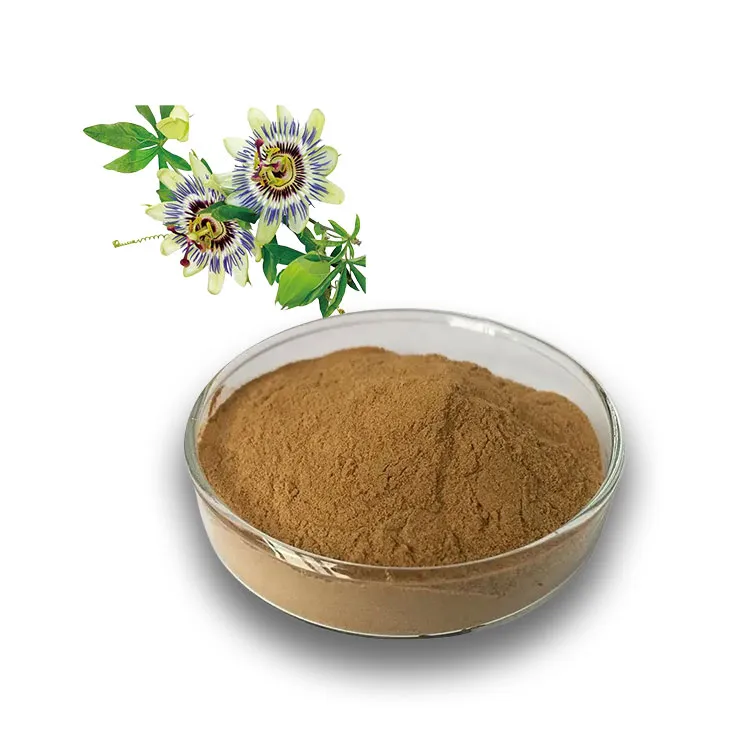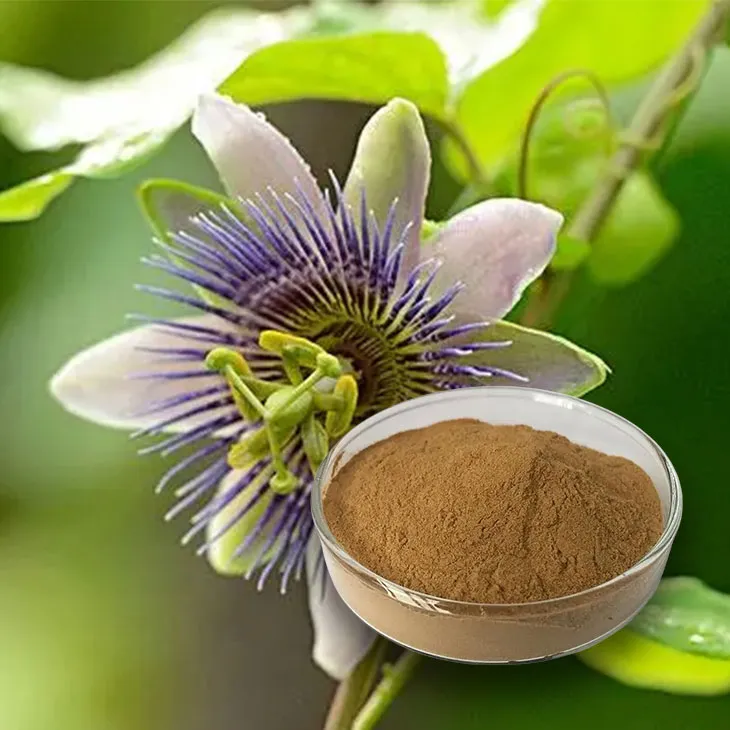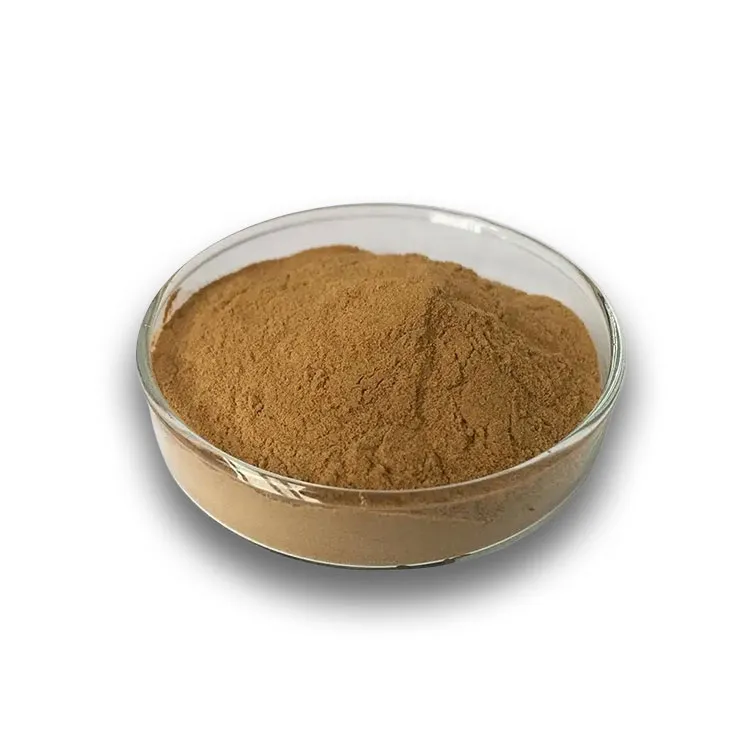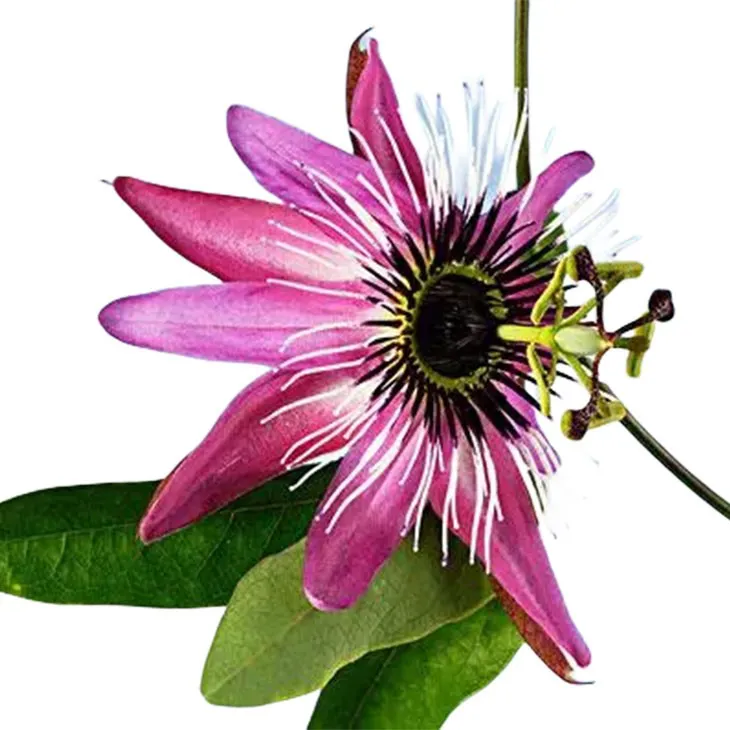- 0086-571-85302990
- sales@greenskybio.com
Passionflower extract: What are its benefits and how to take it?
2024-11-11

1. Introduction
Passionflower (Passiflora incarnata) has been used for centuries in traditional medicine. The extract of this plant is gaining increasing popularity in modern times due to its potential health benefits. In this article, we will explore the various advantages of Passionflower Extract and how it can be properly taken.

2. Chemical Composition of Passionflower Extract
Passionflower Extract contains a rich variety of bioactive compounds. Flavonoids are one of the major components. These flavonoids, such as apigenin, luteolin, and Quercetin, are known for their antioxidant properties. They help in neutralizing free radicals in the body, which are unstable molecules that can cause damage to cells and contribute to various diseases.
Another important group of compounds are the alkaloids. Harman and harmaline are among the alkaloids present in passionflower. These alkaloids are believed to play a role in the plant's physiological effects on the human body.

3. Health Benefits of Passionflower Extract
3.1 Relief from Muscle Spasms
One of the well - known benefits of passionflower extract is its potential to relieve muscle spasms. Muscle spasms can be caused by various factors, including overuse, dehydration, or certain medical conditions. The flavonoids and other compounds in passionflower extract may act on the nervous system to relax the muscles. They may interfere with the transmission of nerve impulses that lead to involuntary muscle contractions, thereby providing relief.
Studies have shown that passionflower extract can be effective in reducing muscle spasms in conditions such as menstrual cramps. Women who experience severe menstrual pain may find some relief by using passionflower extract. It can also be beneficial for athletes or individuals who experience muscle cramps after intense physical activity.
3.2 Support for Cardiovascular Health
The antioxidant properties of passionflower extract play a crucial role in supporting cardiovascular health. Free radicals can damage the blood vessels and contribute to the development of atherosclerosis, a condition characterized by the buildup of plaque in the arteries. By neutralizing free radicals, passionflower extract helps in protecting the blood vessels from oxidative damage.
Moreover, some research suggests that passionflower extract may have a mild blood - pressure - lowering effect. It may help in relaxing the blood vessels, allowing for better blood flow. This can reduce the strain on the heart and lower the risk of developing heart diseases such as hypertension and coronary artery disease.
3.3 Anxiety and Stress Relief
Passionflower extract has also been studied for its potential to relieve anxiety and stress. In modern life, stress and anxiety are common problems that can have a negative impact on mental and physical health. The flavonoids and alkaloids in passionflower extract may interact with the brain's neurotransmitter systems, particularly the gamma - aminobutyric acid (GABA) system.
GABA is an inhibitory neurotransmitter that helps in reducing neuronal excitability. By enhancing the activity of the GABA system, passionflower extract may produce a calming effect on the mind and body. It can help in reducing feelings of anxiety, nervousness, and restlessness. Some people may find it useful as a natural alternative to synthetic anti - anxiety medications.
3.4 Improvement in Sleep Quality
Due to its anxiolytic properties, passionflower extract may also contribute to improved sleep quality. Stress and anxiety are often associated with sleep disturbances, such as difficulty falling asleep or staying asleep. By reducing anxiety levels, passionflower extract can help in promoting a more relaxed state, which is conducive to better sleep.
It may also have a direct effect on the sleep - wake cycle. Some studies have suggested that passionflower extract can regulate the levels of certain hormones and neurotransmitters involved in sleep regulation, such as melatonin. Melatonin is a hormone that helps in controlling the sleep - wake cycle, and passionflower extract may enhance its production or activity.

4. How to Take Passionflower Extract
4.1 Tinctures
Tinctures are a popular form of taking passionflower extract. A tincture is a concentrated liquid extract that is usually made by soaking the plant material in alcohol or a mixture of alcohol and water. To take a passionflower tincture, it is typically placed under the tongue (sublingual administration). This method allows for rapid absorption of the active compounds into the bloodstream through the mucous membranes in the mouth.
When using a tincture, it is important to follow the recommended dosage. The typical dosage may vary depending on the concentration of the tincture and the individual's needs. It is advisable to start with a low dose and gradually increase it if necessary, while always monitoring for any adverse effects.
4.2 Powdered Extract in Smoothies
Another way to take passionflower extract is in the form of a powdered extract added to smoothies. The powdered form can be easily mixed with fruits, vegetables, and other ingredients in a blender to make a delicious and nutritious smoothie. This is a convenient option for those who prefer a more natural and palatable way of consuming the extract.
However, when adding powdered passionflower extract to smoothies, it is crucial to measure the correct amount. Overdosing can lead to potential side effects. It is also important to note that the taste of the passionflower extract may be slightly bitter, so it can be combined with sweeter fruits or other flavorings to mask the taste.
4.3 Capsules
Capsules containing passionflower extract are also available in the market. These capsules provide a convenient and pre - measured way of taking the extract. They are easy to swallow and can be taken with water. When choosing capsules, it is important to select a reputable brand to ensure the quality and purity of the extract.
The dosage of passionflower extract in capsules is usually clearly indicated on the product label. As with other forms of the extract, it is important to follow the recommended dosage and consult a healthcare provider if there are any concerns or pre - existing medical conditions.

5. Precautions and Side Effects
While passionflower extract has many potential benefits, it is important to be aware of some precautions and possible side effects. In general, passionflower extract is considered safe for most people when taken in appropriate doses.
However, some individuals may experience side effects such as drowsiness, dizziness, or gastrointestinal upset. These side effects are usually mild and may subside on their own. If they persist or become more severe, it is advisable to stop taking the extract and consult a healthcare provider.
Passionflower extract may also interact with certain medications. For example, it may potentiate the effects of sedative - hypnotic drugs, such as benzodiazepines. Therefore, it is crucial to inform your healthcare provider if you are taking any medications before starting to use passionflower extract.
Pregnant and breastfeeding women should exercise caution when considering using passionflower extract. Although there is limited evidence of harm, it is best to consult a healthcare provider before using it to ensure the safety of the mother and the baby.
6. Conclusion
Passionflower extract offers a range of potential health benefits, including relief from muscle spasms, support for cardiovascular health, anxiety and stress relief, and improvement in sleep quality. There are different ways to take the extract, such as tinctures, powdered extract in smoothies, and capsules. However, it is important to take the extract in proper dosages and be aware of the precautions and possible side effects. By using passionflower extract responsibly, individuals may be able to take advantage of its natural health - promoting properties.
FAQ:
What are the main bioactive compounds in passionflower extract?
The main bioactive compounds in passionflower extract are flavonoids. These flavonoids are responsible for many of its health - promoting properties.
Can passionflower extract really relieve muscle spasms?
Yes, passionflower extract has the potential to relieve muscle spasms. It contains certain compounds that may act on the nervous system to help relax muscles.
How does passionflower extract support cardiovascular health?
The exact mechanisms are still being studied. However, it is thought that the bioactive compounds in passionflower extract may help regulate blood pressure, reduce inflammation in the blood vessels, or improve lipid profiles, all of which are beneficial for cardiovascular health.
Is it safe to take passionflower extract?
When taken in appropriate dosages, passionflower extract is generally considered safe for most people. However, like any supplement, it may interact with certain medications or cause side effects in some individuals. It is always advisable to consult a healthcare provider before starting to take it.
Can passionflower extract be used as a substitute for medications?
No, passionflower extract should not be used as a substitute for medications. While it may offer certain health benefits, it has not been proven to be as effective as medications in treating specific medical conditions. It can be used as a complementary approach under medical supervision.
Related literature
- The Therapeutic Potential of Passionflower Extract in Neurological Disorders"
- "Passionflower Extract: A Review of its Cardiovascular Benefits"
- "Safety and Efficacy of Passionflower Extract in Complementary Medicine"
- ▶ Hesperidin
- ▶ Citrus Bioflavonoids
- ▶ Plant Extract
- ▶ lycopene
- ▶ Diosmin
- ▶ Grape seed extract
- ▶ Sea buckthorn Juice Powder
- ▶ Fruit Juice Powder
- ▶ Hops Extract
- ▶ Artichoke Extract
- ▶ Mushroom extract
- ▶ Astaxanthin
- ▶ Green Tea Extract
- ▶ Curcumin
- ▶ Horse Chestnut Extract
- ▶ Other Product
- ▶ Boswellia Serrata Extract
- ▶ Resveratrol
- ▶ Marigold Extract
- ▶ Grape Leaf Extract
- ▶ New Product
- ▶ Aminolevulinic acid
- ▶ Cranberry Extract
- ▶ Red Yeast Rice
- ▶ Red Wine Extract
-
Nutmeg Extract
2024-11-11
-
Medicinal Marshmallow Extract
2024-11-11
-
Uridine-5'-monophosphate Disodium salt
2024-11-11
-
Acerola Extract
2024-11-11
-
Eyebright Extract
2024-11-11
-
Bilberry Extract
2024-11-11
-
Genistein
2024-11-11
-
Hawthorn Extract
2024-11-11
-
Polygonum Cuspidatum Extract
2024-11-11
-
Pueraria Lobata Extract
2024-11-11





















